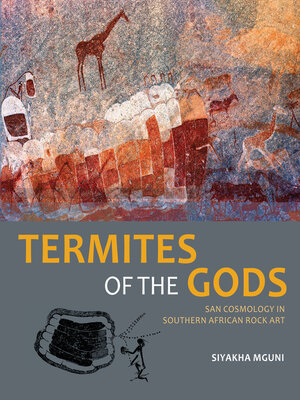
Sign up to save your library
With an OverDrive account, you can save your favorite libraries for at-a-glance information about availability. Find out more about OverDrive accounts.
Find this title in Libby, the library reading app by OverDrive.



Search for a digital library with this title
Title found at these libraries:
| Library Name | Distance |
|---|---|
| Loading... |
In Termites of the Gods, Siyakha Mguni narrates his personal journey, over many years, to discover the significance of a hitherto enigmatic theme in San rock paintings known as 'formlings'. Formlings are a painting category found across the southern African region, including South Africa, Namibia and Zimbabwe, with its densest concentration in the Matopo Hills, Zimbabwe. Generations of archaeologists and anthropologists have wrestled with the meaning of this painting theme in San cosmology without reaching consensus or a plausible explanation. Drawing on San ethnography published over the past 150 years, Mguni argues that formlings are, in fact, representations of flying termites and their underground nests, and are associated with botantical subjects and a range of larger animals considered by the San to have great power and spiritual significance. This book fills a gap in rock art studies around the interpretation and meaning of formlings. It offers an innovative methodological approach for understanding subject matter in San rock art that is not easily recognisable, and will be an invaluable reference book to students and scholars in rock art studies and archaeology.







